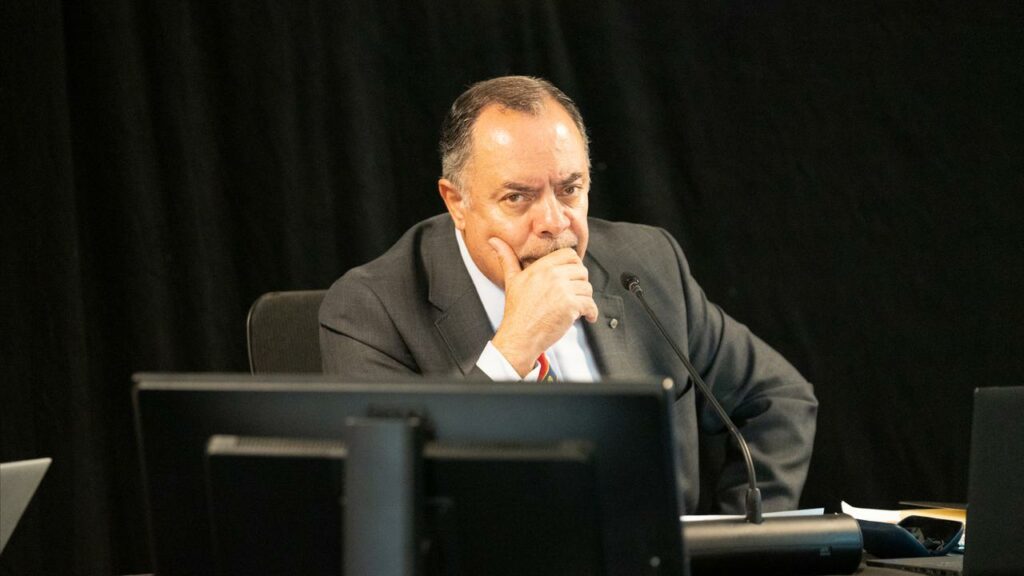Ecstasy for ex-soldier to help ease trauma
Deborah Cornwall |

In a desperate search for medical help after being discharged from the army, a former soldier was told to continue self medicating with the illegal drug ecstasy.
James Geercke joined the Australian Defence Force Academy in 2009 as an 18-year-old and was medically discharged from the army in 2011 with a serious spinal injury.
He told a Royal Commission into Defence and Veteran Suicide on Monday the support offered by the Department of Veterans Affairs was “horrifically negative” at a time when his mental health had severely deteriorated.
“I was having lots of substance abuse issues, I was mixing alcohol with my painkillers and MDMA tablets, and it was getting out of control,” Mr Geercke told the inquiry on the first day of hearings in Wagga Wagga.
He said by 2013 the department’s failure to provide him with any mental health support had forced him to seek his own therapist.
But instead of helping manage his drug abuse his therapist told him if his ecstasy use wasn’t hurting anyone, he should continue.
“You’re not actually struggling and you should keep using these, using everything just as you are, and as long as you are not hurting yourself or don’t hurt anyone else we don’t need a follow-up appointment,” he recounted the advice from the therapist.
Mr Geercke said his catastrophic spinal injuries were the result of the academy’s “extreme” training regime in which cadets were routinely pushed to their limits.
Instructors warned recruits the harsh training and food and sleep deprivation meant every recruit would suffer “mild” PTSD symptoms at the end of their three-month basic training in Wagga Wagga, the former soldier said.
“They explained to us that that happens because when they put us through this intense training it can have similar effects on the brain as taking psychedelic substances such as LSD,” he added.
Over the next two years he and his fellow cadets’ mental health deteriorated and “we started seeing a lot of self-harm,” including several suicides.
“These were some of the youngest, brightest, driven, intelligent people the country had to offer … but they all took their own lives,” he said
The inquiry was told the young cadets had been actively encouraged by their instructors not to report their psychological problems and risk a medical discharge.
Instead, they were told to “keep it all under the carpet”.
Mr Geerck said by the time he injured his spine when training in 2010 he had become so “delusional” he had pushed through the pain for another four days before collapsing, with permanent damage.
He said he had been carrying a 50kg backpack with seven crushed discs and suffering “indescribable pain”, which continued.
“That’s when I basically had become very delusional,” Mr Geerck said.
Commission chairman Nick Kaldas said Wagga Wagga was home to the Army’s first recruit training battalion at Kapooka and the Royal Australian Air Force No.1 recruit training unit, and it was vital to examine training and other issues as part of the inquiry.
“We know that some of the risk factors that contribute to death by suicide in the military community may have their origins during recruitment and training,” he said.
Senior counsel assisting the commission, Kevin Connor, SC, said the inquiry would be exploring the physical and psychological risks of a conduct-after-capture course, “which subjects people to, among other things, mock interrogations”.
Lifeline 13 11 14
Open Arms 1800 011 046
AAP